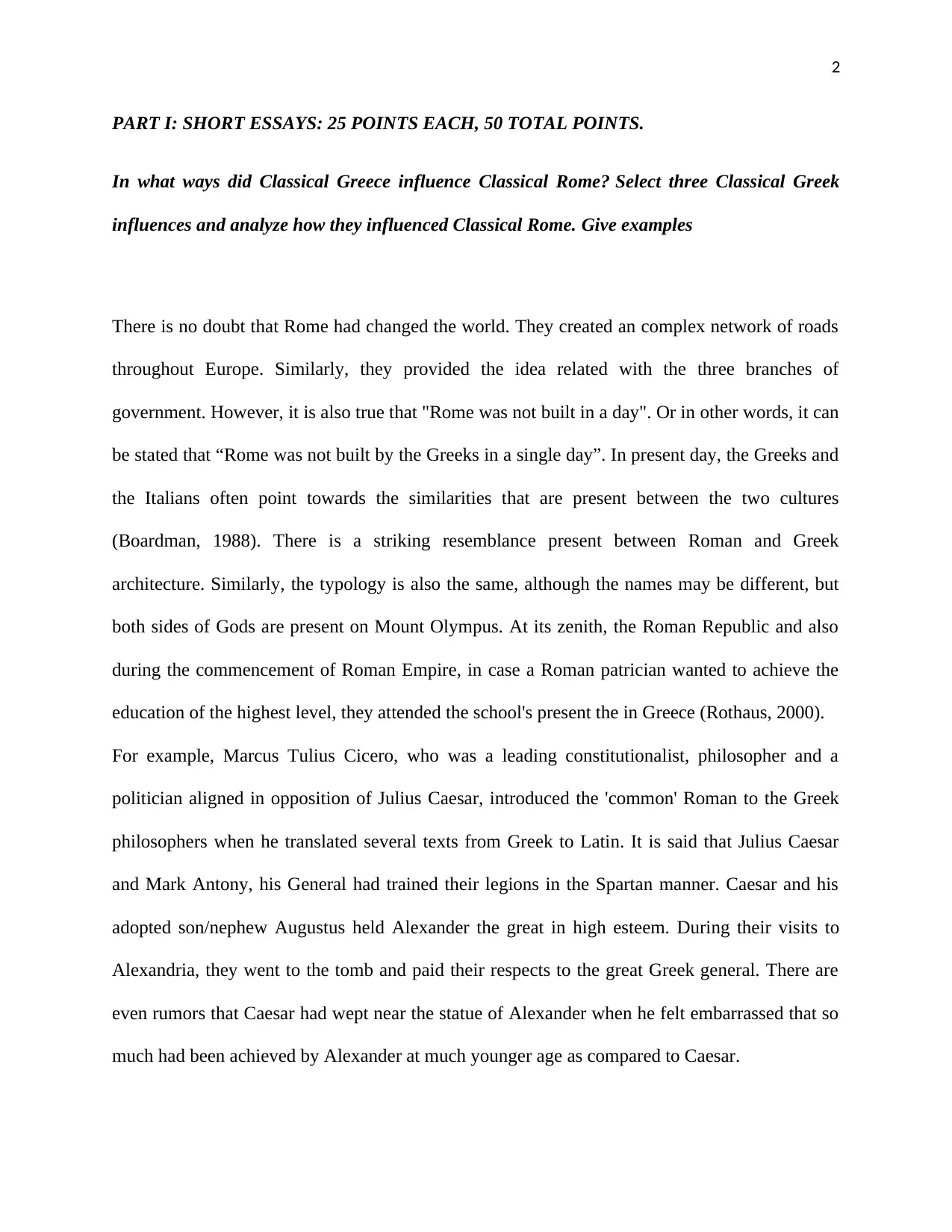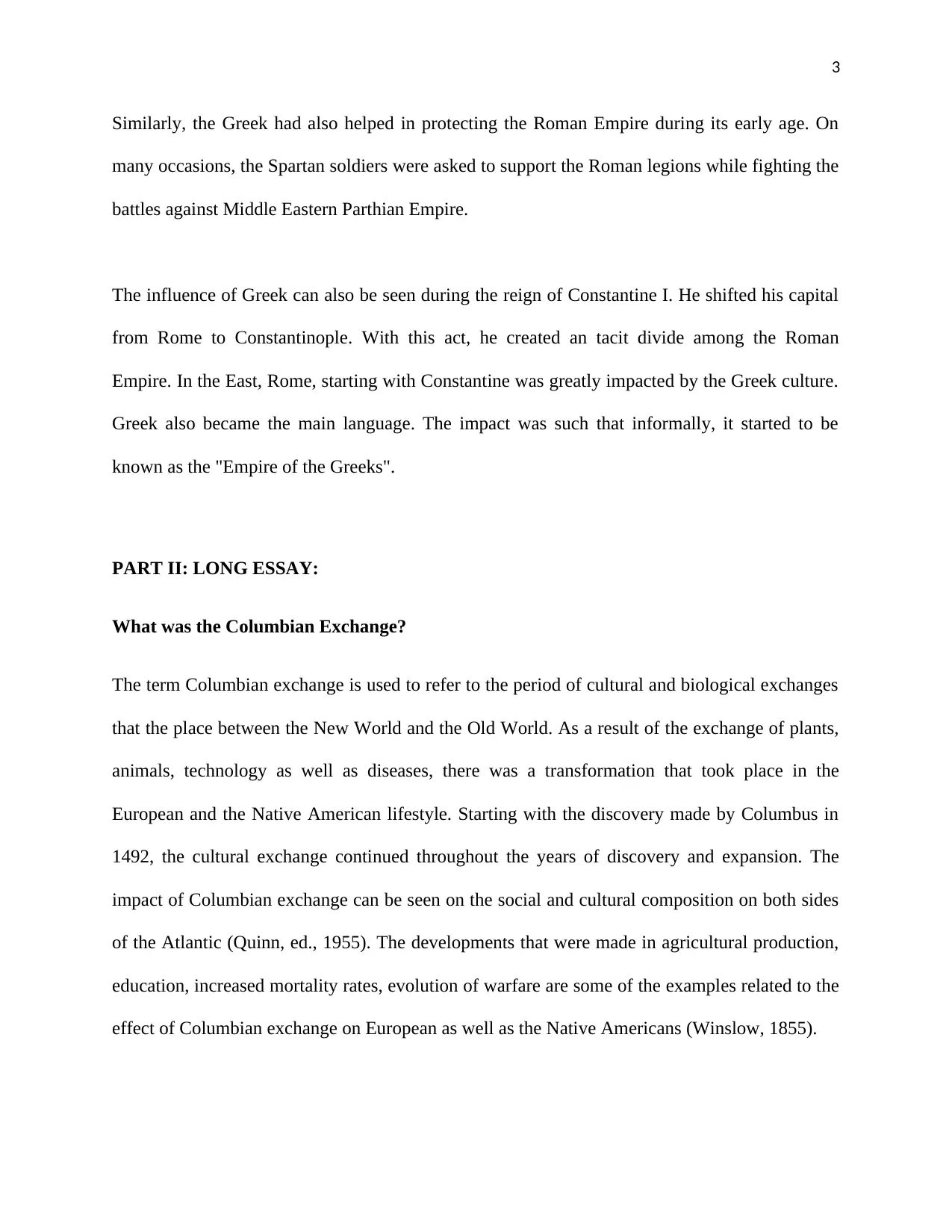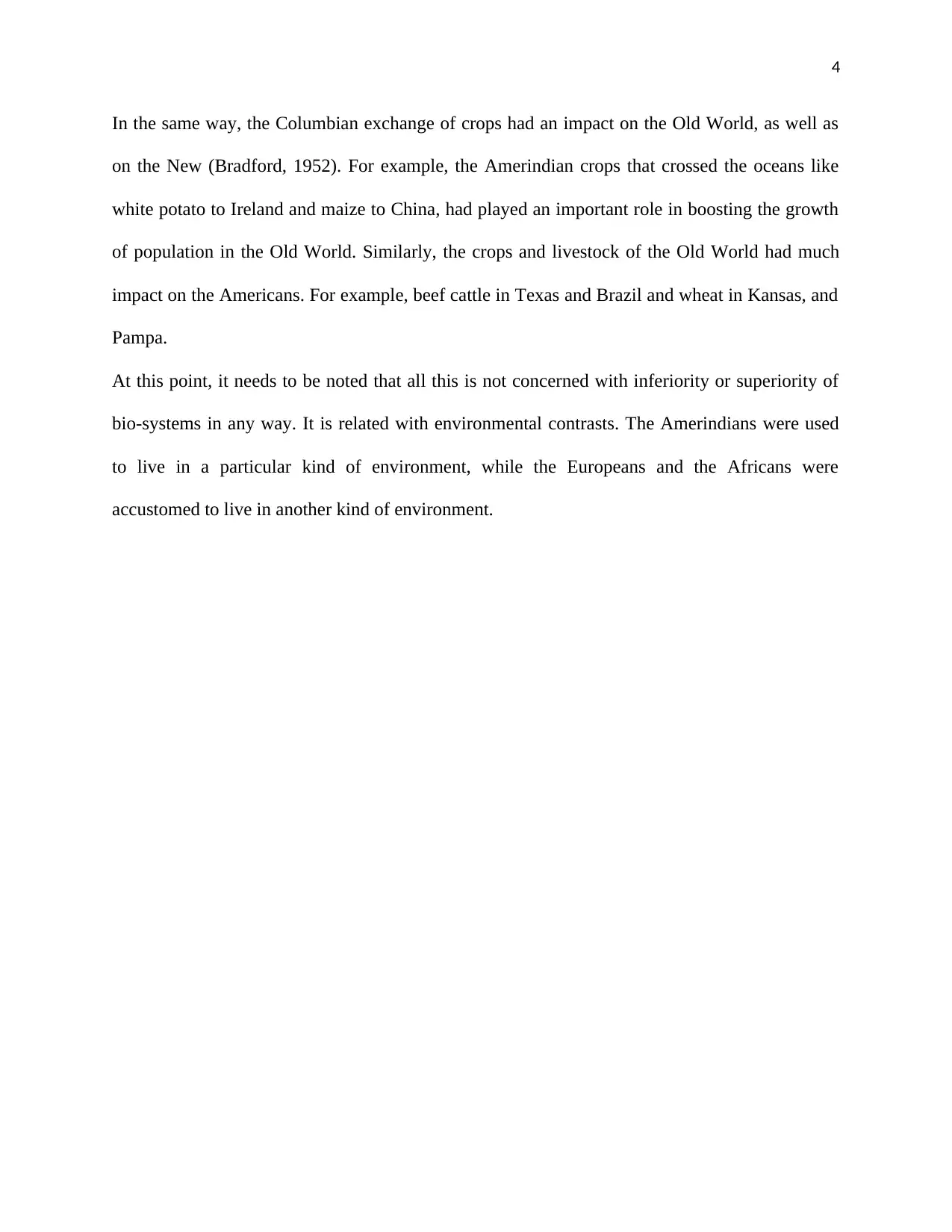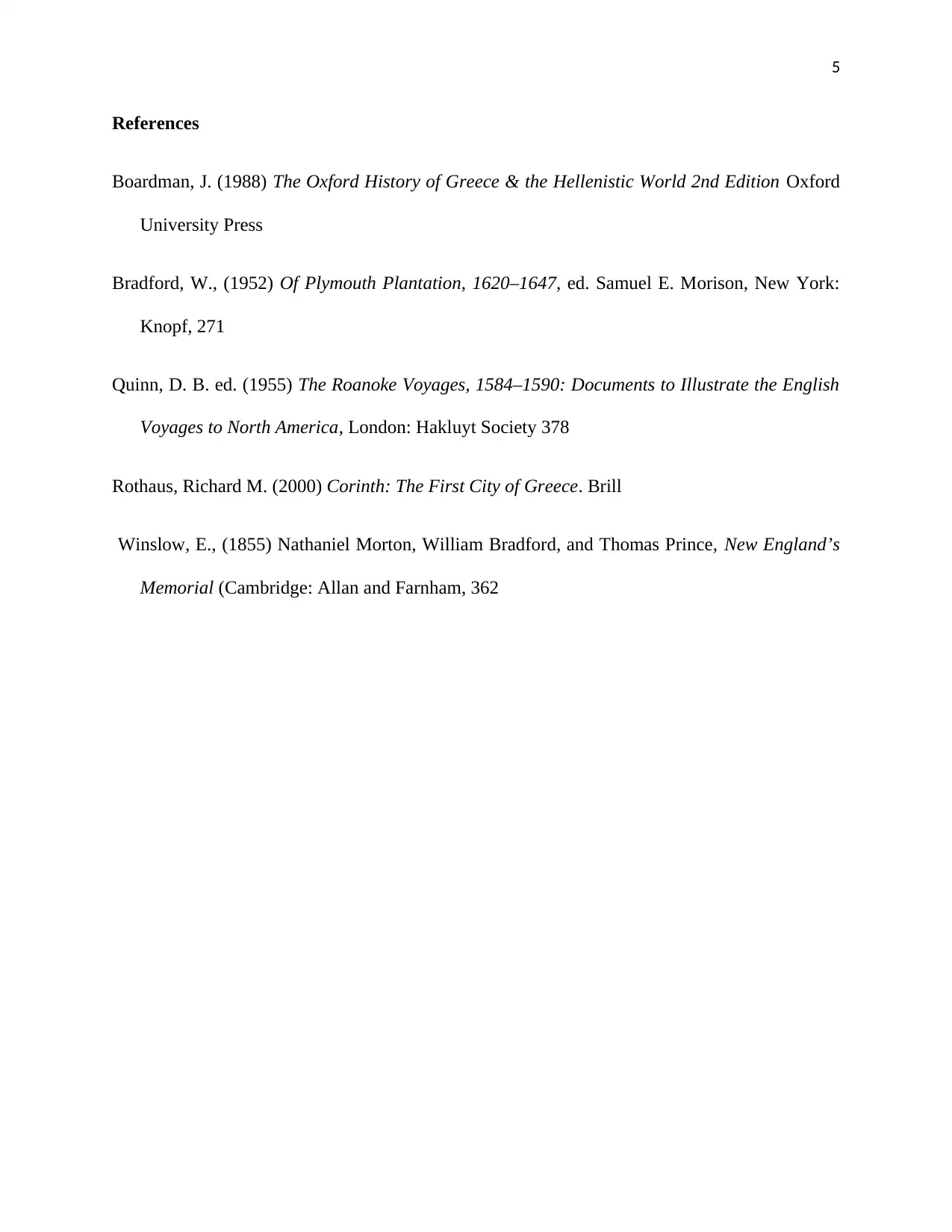Analysis of Greek Influence on Roman Civilization - History
VerifiedAdded on 2020/05/11
|5
|943
|530
Homework Assignment
AI Summary
This assignment explores the profound influence of Classical Greece on Classical Rome, examining specific examples of cultural and societal impacts. The first part of the assignment requires short essays analyzing three key Greek influences on Roman civilization, providing examples of how these influences manifested. The second part delves into the Columbian Exchange, defining the term and outlining its transformative effects on both the Old and New Worlds. It discusses the exchange of plants, animals, technology, and diseases, highlighting the impact on social, cultural, and economic aspects of both European and Native American societies. The assignment also touches upon the exchange of crops, such as the impact of Amerindian crops on the Old World and vice versa, emphasizing the environmental contrasts that shaped these exchanges. The provided references support the analysis with historical context.
1 out of 5






![[object Object]](/_next/static/media/star-bottom.7253800d.svg)